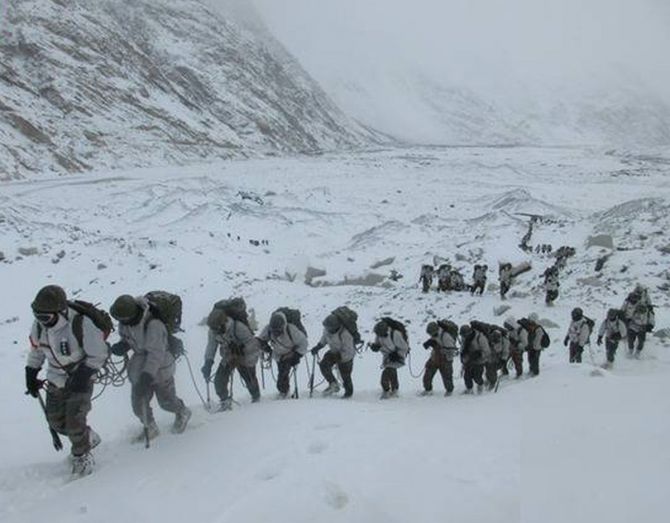India on Friday blamed China for the military standoff in eastern Ladakh, insisting this was a result of the actions by the neighbouring country to effect a 'unilateral change' in the status along the Line of Actual Control (LAC).

The assertion by the Ministry of External Affairs(MEA) Spokesperson Anurag Srivastava came a day after the Chinese foreign ministry again held India responsible for the border situation in eastern Ladakh.
Referring to China's comments that it 'strictly' observes the bilateral agreements and is committed to resolving the border issue through dialogue, Srivastava said New Delhi expects Beijing to match its words with actions.
The MEA spokesperson also rejected China's claim that it had to cancel a joint launch of a commemorative stamp with India as New Delhi did not give its feedback on the matter within the agreed time-frame.
"Our position has been very clear and has been articulated several times in the past. The situation that we have seen since the last six months has been a result of the actions of the Chinese side which has sought to effect a unilateral change in status along the LAC in eastern Ladakh," he said at a media briefing.
The spokesperson was replying to a question on China again blaming India for the border standoff.
"These actions are in violation of the bilateral agreements and protocol on ensuring peace and tranquillity along the LAC in the India-China border areas," he added.
A Chinese foreign ministry spokesperson on Thursday blamed India again for the border standoff while reacting to External Affairs Minister S Jaishankar's comments that bilateral ties have been 'very significantly damaged' following violation of various border pacts by China and that it has given India 'five differing explanations' for its actions.
"We have taken note of the Chinese side's statement that it observes 'strictly the agreements between the two sides and is committed to resolving the border issue through dialogue and safeguarding peace and tranquillity' in the border areas. We expect that the Chinese side will match its words with actions," Srivastava said.
The armies of India and China are locked in a tense border standoff in eastern Ladakh since early May.
Both sides have held multiple rounds of military and diplomatic talks. However, no breakthrough has been achieved yet.
Srivastava said the two sides have continued to maintain communication through diplomatic and military channels.
"It is our expectation that the further discussions will help both sides to achieve an agreement on a mutually acceptable solution for ensuring complete disengagement in all friction points along the LAC in the Western sector and full restoration of peace and tranquillity as early as possible," he said.
The MEA spokesperson said the core issues remains that both sides need to strictly follow the various bilateral agreements and protocols in their entirety, including the 1993 and 1996 agreements on maintenance of peace and tranquillity along the LAC.
He said the pacts require that there should not be amassing of troops, each side should strictly abide by and respect the LAC and should not take any unilateral action to alter it.
Asked about China's comments that it had to cancel the joint launch of the commemorative stamp with India to mark the 70th anniversary of diplomatic ties as New Delhi could not provide its feedback on the matter, Srivastava called it factually incorrect.
"Joint release of commemorative stamps to mark the 70th anniversary of diplomatic relations between India and China was one of the activities agreed with the Chinese side last year.
"However, there had been no discussion on any launch date with any Chinese authorities for this activity," he said.
"We have also seen the Chinese embassy's tweet suggesting that this event was cancelled by the Chinese side on account of no feedback given by the Indian side before the launch time agreed by both -- this is factually incorrect," he said.
Srivastava said the launch of the 70th anniversary celebrations itself has not taken place yet, adding, therefore, the issue of going ahead with joint activities under its ambit does not arise.











 © 2025
© 2025